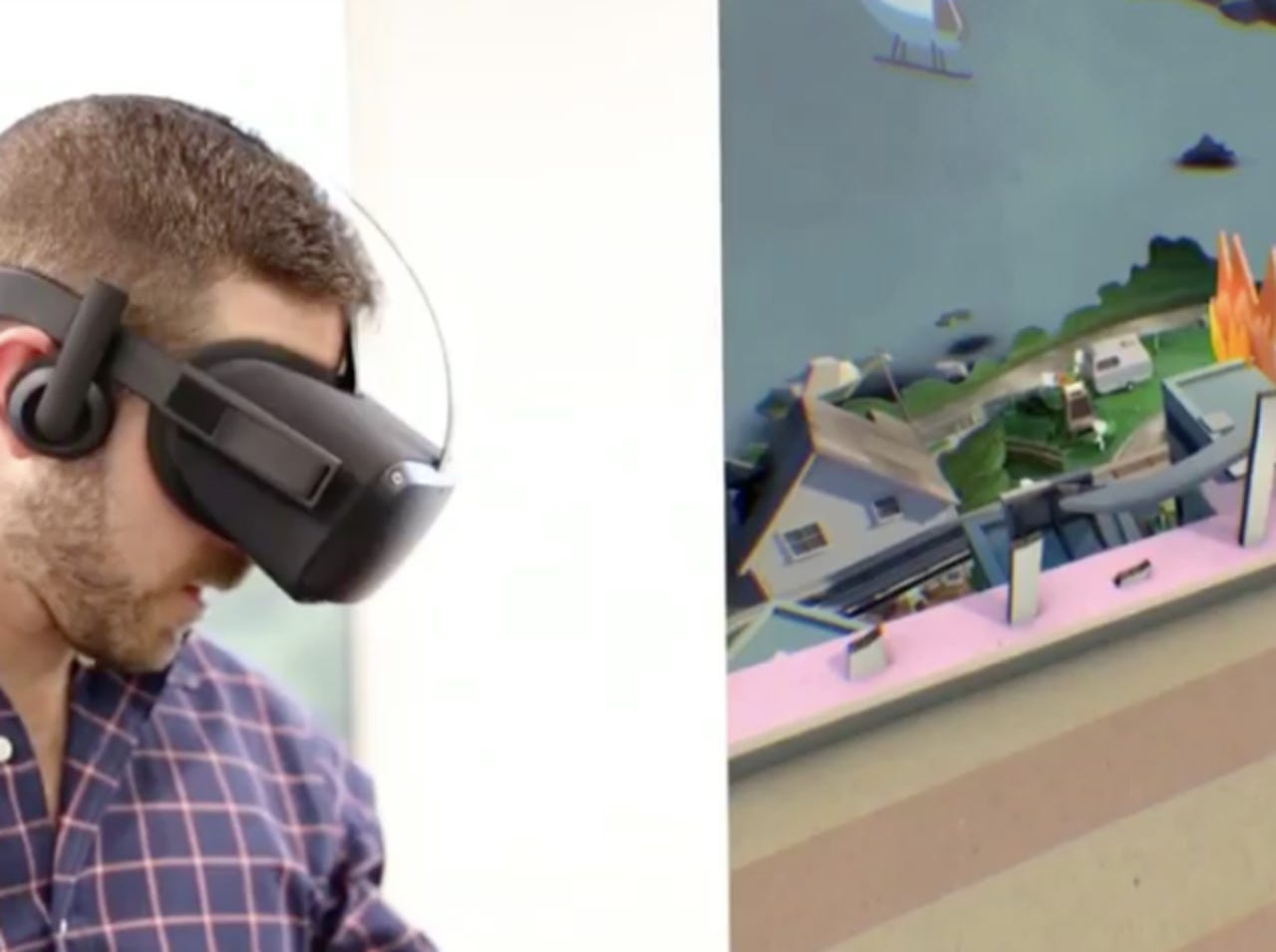Mark Zuckerberg teases Oculus prototype for wireless VR


Facebook's new prototype VR headset.
During a keynote speech at the annual Oculus Connect developer conference, Facebook CEO Mark Zuckerberg revealed plans for a new standalone virtual reality device that's untethered from PCs and mobile phones.
Featured
The unnamed product is only in the prototype phase, but Zuckerberg touts it as the next generation of virtual reality headsets.
"Facebook is working on this but it's still early," Zuckerberg said. "We have a demo but no product yet. It will exist after combining hardware and software innovation for the next generation of VR."
The key feature of the prototype headset is new computer vision software that optimizes positional tracking. As Zuckerberg explained, there's outside-in tracking and inside-out tracking when it comes to how VR software sees motion.
With an outside-in system, which is currently used in Oculus Rift, there's usually physical tethering to a computing device. By contrast, an inside-out tracking system can be completely untethered, as spatial tracking takes place in-headset. This means users can walk through an experience and see and interact with things as they would in the real world, without wires hindering mobility.
Zuckerberg says inside-out tracking is "one of the toughest problems in computer science," as no one has gotten the technology to reliably work in VR.
In a demo video, the prototype headset looked similar to Rift, but thanks to inside-out tracking, the user was able to walk around and see the VR world from every angle. Zuckerberg didn't reveal any details about pricing or availability, but it's safe to assume we'll learn more about this mystery device in the coming months.
Overall, Zuckerberg's appearance at Oculus Connect stressed the importance software innovation for next-gen VR. Zuckerberg also committed $250 million to boost VR content on the Oculus platform.
"Software is key to the next phase of VR," he said. "We will build a software platform that puts people first and we will continue making progress on computer vision until we can unlock this new category of VR."